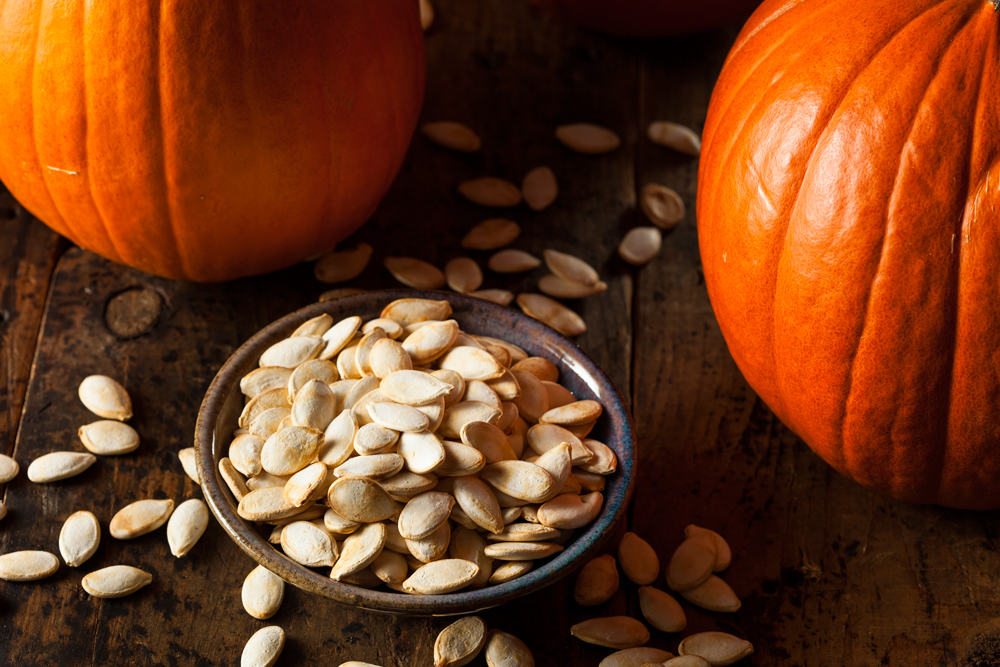Fruit of the month Seeds EN
Seize the moment with trendy seeds
Edible seeds are making a comeback – we take a closer look at what consumers can gain from this new food trend.
Healthy fats are a key topic of conversation when discussing nutrition, and one seldom finds a 3-in-1 combination of healthy fats, protein, and fibre together in one food. Except in seeds. As always, we’re dialed in with the latest trends and our current passion is the beautiful and nutritionally packed seed – specifically flaxseed, pumpkin seeds, and sunflower seeds. Where do they come from, how do they taste, what do they contribute to our wellbeing, and which food trends are related to the tiny but mighty powerful seeds?
Flax seeds are small brown or golden seeds that come from the flax plant. They have a mild, lightly nutty flavour and are high in fibre. Ground flaxseed is easiest to digest, and it is believed to be even more nutritious since whole seeds sometimes pass through undigested.
The top positive health benefits of flaxseed
- Omega 3: After seafood, flaxseed oil is the best source of omega-3 fatty acids – which is normally very difficult to find in food.
- Consumers can find 20 grams protein per 100 grams flaxseed.
- Fiber: Soluble & insoluble fibre to support digestion.
- Lignans: Lignans, which have both plant estrogen and antioxidant qualities. Flaxseed contains 75 to 800 times more lignans than other plant foods.
Health conscious foodies are very creative in integrating flaxseed in their daily eating routine. They add it to their risotto or bread and – of course – it is very popular to add it to yogurt.
Pumpkin seeds are amongst the most versatile seeds one can buy. The green kernels indeed have a high-quality fat content (19 grams of fat in 100 grams of pumpkin seeds) and they are packed with 10 grams of protein and loads of minerals.
The top 3 positive health benefits of pumpkin seeds
- One-quarter cup of pumpkin seeds contains nearly half of the recommended daily amount of magnesium.
- Pumpkin seeds are a rich source of zinc (one ounce contains more than 2 mg of this beneficial mineral), which is important for immunity, cell growth and division, sleep and mood.
- Pumpkin seed oil is rich in natural phytoestrogens and studies suggest it may lead to a significant increase in good "HDL" cholesterol along with decreases in blood pressure.
Foodies love to put them in a breakfast crumble together with lots of fruits, seeds and nuts.
Cultivated around 2,500 years B.C., the sunflower originates from North and Central America, the flowers, whose blooms always point towards the sun (“the compass flower”), began their successful march from there. Sailors brought them to Europe in about 1550 and by 1700, the seeds were already being roasted and used in baked goods. Sunflower seeds are between 6 and 10 millimetres long and have a conical shape. They have a black hull that contains a single, edible, greyish-white kernel. There are several hundred edible oilseeds per sunflower bloom.
The top 3 positive health benefits of sunflower seeds
- Mono- & polyunsaturated fatty acids that help to lower LDL (“bad”) cholesterol, among other things.
- Great source of protein with high-quality amino acids, such as tryptophan, which also contributes to growth.
- Top source of vitamin E and folate, (100 grams fulfill about 37% of the daily requirement).
This means that a handful of sunflower seeds per day has many health benefits and provides us with a variety of the minerals, vitamins, antioxidants and protein that we need everyday. We see sunflower seeds increasingly used in a lot of food categories and health & crunch conscious consumers love to incorporate this nutritionally packed seed in to their diets.The time when seeds were some of the most overlooked nutrients is over – they are on the rise and we are excited to be a part of this trend and support your new product development efforts.


